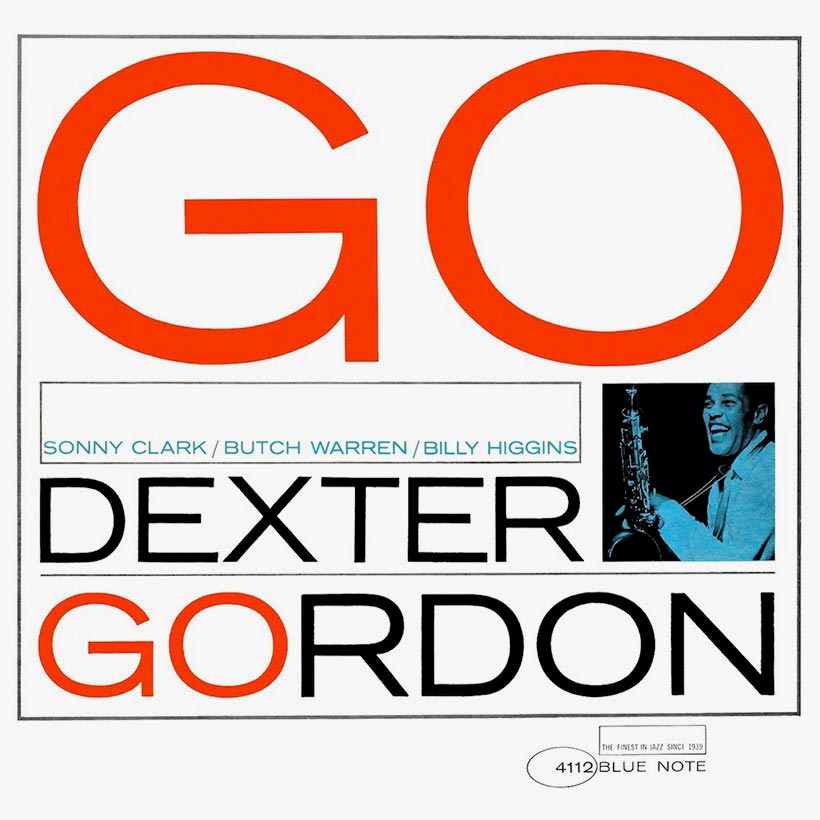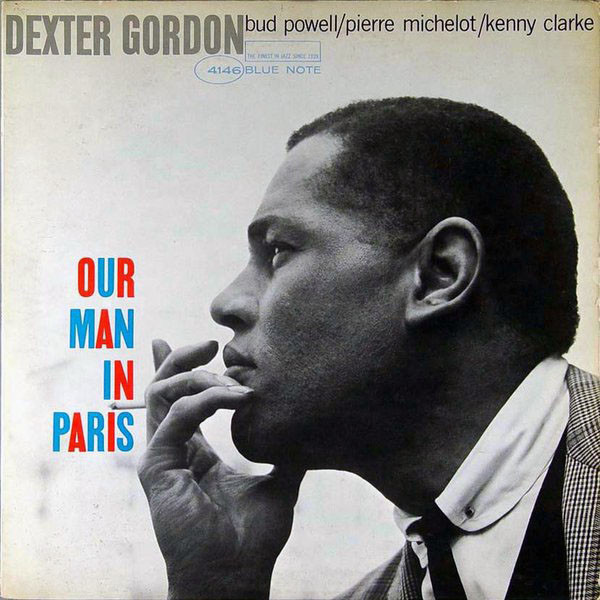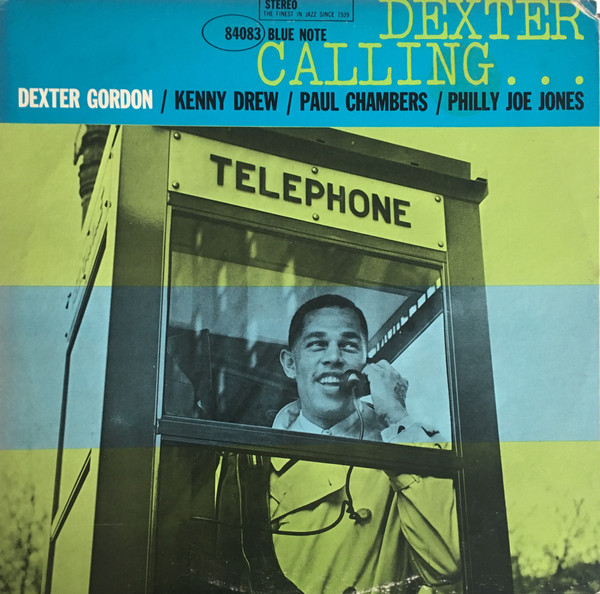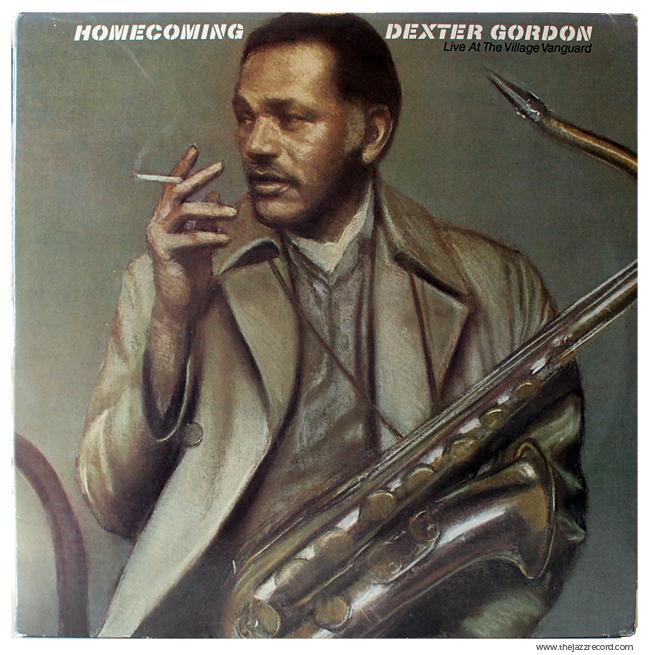The Best Dexter Gordon Albums
Dexter Gordon, an iconic figure in the world of jazz, left an indelible mark with his powerful tenor saxophone and a discography that continues to captivate audiences. In this blog post, we delve into four of his stellar albums—'Go!,' 'Our Man in Paris,' 'Dexter Calling...,' and 'Homecoming: Live at the Village Vanguard'—each a masterpiece in its own right.
The Best Dexter Gordon Albums
- Go!

Released in 1962 on the Blue Note label, 'Go!' stands as a testament to Dexter Gordon's exceptional artistry. Recorded in an informal setting at the Van Gelder Studio, the album features Gordon on tenor saxophone, accompanied by Sonny Clark on piano, Butch Warren on bass, and Billy Higgins on drums.
The album opens with the lively "Cheese Cake," setting the tone for what would become a classic jazz recording. The tracks showcase Gordon's expressive and dynamic playing, with notable compositions like "Love for Sale" and "Second Balcony Jump." The chemistry among the musicians is palpable, creating an atmosphere that resonates with the spontaneity of a live performance.
'Go!' has not only received critical acclaim but also earned a place in the National Recording Registry, a testament to its cultural and historical significance. The re-release in 1999 as part of Blue Note's RVG Series ensures that this gem continues to enchant jazz enthusiasts.
If you are interested in learning music check out our Music Lessons in Denton.
- Our Man in Paris

In 1963, Dexter Gordon took his talents to Paris for the recording of 'Our Man in Paris.' Joining forces with expatriates Bud Powell and Kenny Clarke, along with native Parisian Pierre Michelot, Gordon crafted an album that remains a classic in the jazz genre.
Gordon's decision to embrace jazz standards during the recording, despite the initial plan for new compositions, resulted in a timeless collection. The rendition of "A Night in Tunisia" is hailed as one of Gordon's finest performances, contributing to the album's status as an all-time classic.
The 2003 remastered version, part of Blue Note's RVG Edition series, breathes new life into this masterpiece. 'Our Man in Paris' stands as a testament to Gordon's ability to transcend borders and create music that resonates globally.
- Dexter Calling...

Released in 1962, 'Dexter Calling...' is Gordon's second album for Blue Note, recorded just three days after his debut for the label, 'Doin' Allright.' The album features compositions like "Soul Sister" and "Ernie's Tune," showcasing Gordon's versatility and solid swinging style.
The Billboard Reviewer aptly described the album as "solid jazz wax," praising Gordon's tenor saxophone prowess. The inclusion of tracks like "Modal Mood" and "Clear the Dex" adds depth to the album, making it an essential part of Gordon's discography.
With a four-star rating from Allmusic and recognition in The Penguin Guide to Jazz Recordings, 'Dexter Calling...' remains a pivotal recording in Gordon's illustrious career. The interplay between Gordon, pianist Kenny Drew, bassist Paul Chambers, and drummer Philly Joe Jones creates a memorable musical journey.
- Homecoming: Live at the Village Vanguard

Recorded in 1976 at the Village Vanguard in New York City, 'Homecoming' marked Dexter Gordon's return to the United States after an extended residency in Europe. The double LP captures the energy and brilliance of Gordon's live performances.
The tracklist includes captivating renditions of compositions like "Gingerbread Boy," "Fenja," and "Round Midnight." Gordon's tenor saxophone takes center stage, supported by a stellar ensemble featuring Woody Shaw on trumpet, Ronnie Mathews on piano, Stafford James on bass, and Louis Hayes on drums.
The live recording provides a glimpse into Gordon's prowess as a performer, with extended improvisations and spirited interactions among the musicians. The bonus tracks on the 1990 CD re-issue, including "Fried Bananas" and "Body and Soul," further enhance the listening experience.
In conclusion, these four albums—'Go!,' 'Our Man in Paris,' 'Dexter Calling...,' and 'Homecoming: Live at the Village Vanguard'—underscore Dexter Gordon's enduring legacy in the world of jazz. Each album captures a unique facet of his musical brilliance, ensuring that his influence continues to resonate with jazz aficionados and newcomers alike.
Dexter Gordon, often referred to as "Long Tall Dexter" due to his towering stature, was a towering figure in the world of jazz, both literally and figuratively. Born on February 27, 1923, in Los Angeles, California, Gordon began playing the clarinet before transitioning to the saxophone, ultimately making a mark as one of the most influential and distinctive tenor saxophonists in jazz history.
Gordon's career spanned several decades, and his impact on the evolution of jazz is immeasurable. His distinctive sound, characterized by a warm and robust tone, resonated with audiences and fellow musicians alike. His phrasing and ability to convey emotion through his playing set him apart as a true master of his craft.
In addition to his technical prowess, Dexter Gordon was known for his engaging stage presence and a charismatic personality that endeared him to fans worldwide. His long, flowing lines and melodic improvisations became his signature, creating a style that left an indelible mark on the jazz landscape.
Gordon's journey took him across continents, from the vibrant jazz scenes of the United States to the cultural hubs of Europe. His time in Europe during the 1960s allowed him to collaborate with other expatriate musicians and further expand his musical horizons. This period of international exposure contributed to the richness and diversity of his musical expression.
Beyond his solo career, Gordon was a sought-after collaborator, working with jazz luminaries such as Bud Powell, Kenny Clarke, and Woody Shaw. His ability to seamlessly blend into various musical contexts showcased his versatility and adaptability as a musician.
Dexter Gordon's legacy extends not only through his extensive discography but also through his influence on subsequent generations of jazz musicians. He was a bridge between the bebop era and the more modern styles that emerged, leaving an enduring legacy that continues to inspire and captivate jazz enthusiasts worldwide. His contributions to the art form earned him critical acclaim, including multiple Grammy nominations, further solidifying his place in the pantheon of jazz greats.
If you like this check out our article: Top 4 Sonny Rollins Albums
